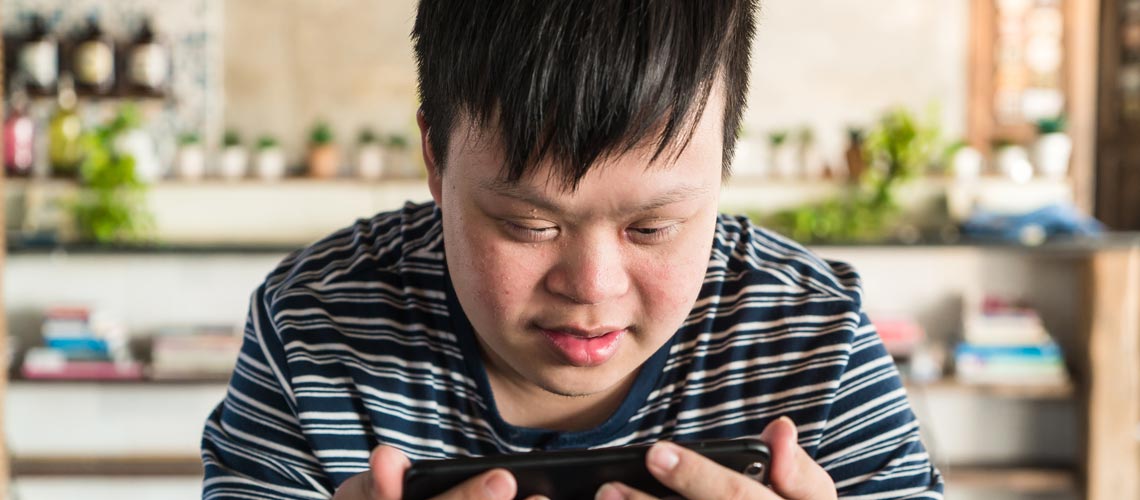A disabled woman complained that she paid a high fee to call a taxi for the disabled to take her to an ID registration center, only to be turned away after waiting in long queues and told to come back another day.
One elderly man with albinism said he was forced to wait in the sun because the nearest identity registration centre would not provide him with accommodation, fearing he would suffer irreparable damage to his skin.
A child with Down’s syndrome was unable to register for an ID because the photo-taking software kept ceasing due to errors, and he was turned away by the registration staff.
These are just some of the experiences shared by people with disabilities during national consultations conducted in collaboration with the ID4D initiative and the Global Practice for Social Sustainability and Inclusion. Such consultations across Africa have helped inform the development of a new guidance note on building disability-inclusive ID systems, helping practitioners make disability inclusion a reality.
It is estimated that one billion people worldwide lack a government-recognized identity document. People with disabilities are more likely to experience greater barriers to obtaining and using ID And because ID is often used to access services and benefits, lack of ID can be a further barrier to agency and empowerment for people with disabilities. Having ID also has the potential to transform the lives of people with disabilities. As one traditional leader from a leprosy community in Nigeria told the national survey:
“You know, as leprosy patients, we are already discriminated against. Having the national ID card gives me the confidence to stand among others. With my ID card, I have the confidence to go to court to make a claim or go to the police station and call a police officer to help me.”
ID systems need to be carefully designed from the beginning to ensure accessibility and inclusion for people with disabilities. It is aligned with certain principles for sustainable development.
Persistent barriers complicate access to identity
People with disabilities make up more than 15% of the world’s population, and in many developing countries this percentage is even higher. In Nigeria alone, there are an estimated 25 million people with disabilities. This substantial proportion of the population faces systematic, long-standing and deep-rooted barriers to obtaining ID. Challenges include the inaccessibility of registration centers, both in terms of distance from home and barrier-free facilities and services. They often face higher indirect costs to complete lengthy and complex procedures, obtain accessible transport, and secure favourable positions when filling forms or queuing. Frontline staff may not be trained in addressing the needs of people with disabilities or in exception handling procedures to avoid issues with, for example, obtaining biometric identification. Social prejudices and misconceptions about people with disabilities, as well as their need for identification, often dominate how services are provided and interactions are conducted.
Practitioners should apply a whole-system approach to disability-inclusive ID
Implementing inclusive and enabling legal and governance frameworks can ensure that there is no discrimination on the basis of disability and pave the way for the gradual realization of ID for all. Involving people with disabilities in the planning stages of ID systems and throughout their implementation is crucial. Countries can start by incorporating a disability perspective in evaluations, involving disability experts early on and ensuring disability representation in task forces and working groups. Educating people with disabilities about ID systems requires the dissemination of accessible information and the provision of messages in multiple formats to reach people with different disabilities. Adapt ID-related processes and technologies. This may mean moving registration closer to people, ensuring accessibility of centres and shorter queues, providing sign language interpreters and training staff to make reasonable accommodations where necessary. To ensure that technology is an enabler and not another barrier, exception handling procedures need to be applied appropriately.
We can also support innovative solutions such as those proposed by Special Olympics Nigeria, one of the winners of the 2020 Mission Billion Challenge, to successfully support and inclusivity for people with intellectual disabilities.
As we celebrate the International Day of Persons with Disabilities, let us work together to ensure that people with disabilities are included in all identity systems.
Related
ID4D Initiative
Building an ID system that takes people with disabilities into consideration
The World Bank and Social Sustainability and Inclusion

